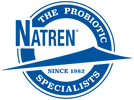It’s been a while since we mentioned probiotics in the animal kingdom, so to BEEgin the New Year, we want to let you know about an exciting project taken on by a team of 20 engineering and science students who spent their summer developing a probiotic for honey bees, which they’ve coined “pro-bee-otic”.
Honeybees pollinate more than $15 billion worth of crops in the U.S. every year and similar to some of the animal topics we’ve written about, they’re dying off in alarming rates. It’s alarming because we rely on the honeybees for our food. According to the USDA, one in three mouthfuls of food consumed in the USA are directly or indirectly benefitted from honeybee pollination. Some crops are completely dependent on honeybees for pollination. And, it really is an important worldwide issue. Honey is used by countless cultures around the world, and not only used to put on a slice of bread, or in a drink, but it has tremendous health benefits too. It’s extremely versatile. This is an important issue that deserves attention.
Colony Collapse Disorder
The students are betting that probiotics are the solution to saving the bees from death that’s caused by harmful pesticides. They’ve identified a species of bacteria that only lives in the honeybees’ guts, and tried to genetically engineer the bacteria to break down the pesticide, neonicotioids, that has been linked to bee death and it’s also thought to contribute to colony collapse disorder (CCD). CCD is a syndrome defined as a dead colony with no adult bees or dead bee bodies, but there is a live queen and usually honey and immature bees still present.
Pesticides
The neonicotinoid-based pesticides are one of the most widely used pesticides because they only harm insects, not people or other mammals. It’s also been a hot topic lately as a U.S. court overturned the Environmental Protection Agency’s approval of a similar pesticide because of its potential risk to bees. Unfortunately, pesticides are essential for modern agriculture and since there are no other viable solutions yet the consequences can be quite devastating.
Making a Pro-bee-iotic
One of the biggest challenges for the students is to turn the bacteria, Gilliamella apicola, into a “pro-bee-iotic” that will help the bees break down the toxic pesticide. Since there’s very little research on these bacteria, the students have been trying several ways to get the genes into the bacteria. It’s not an easy process. But, if they’re successful, beekeepers could keep the solution in a sugar water solution near the hives. The thought process is that the bees will ingest the bacteria and take it back to the hives and via regurgitation, pass it on to the other bees in the colony.
2015 International Genetically Engineered Machine
The students took their idea to the 2015 International Genetically Engineered Machine (iGEM) competition late November. As of this writing, we’ve not heard what the judges thought about the students’ idea but we will bring you a follow up once we learn more. We can only hope that they received some recognition for their pro-bee-otic concept. We applaud their efforts. There’s no doubt that probiotics are beneficial bacteria that are proving to have infinite number of healing properties in many ways.
And, if you’ve missed our past blogs on how probiotics are benefiting a wide range of animals be sure to read those here:
- Probiotics and an Endangered Frog
- Probiotics and Coldwater Disease in Fish
- Could Probiotics Save Panda Bears?
The post Can Honeybees Benefit from Probiotics? appeared first on Natren Probiotics Blog.




0 comments